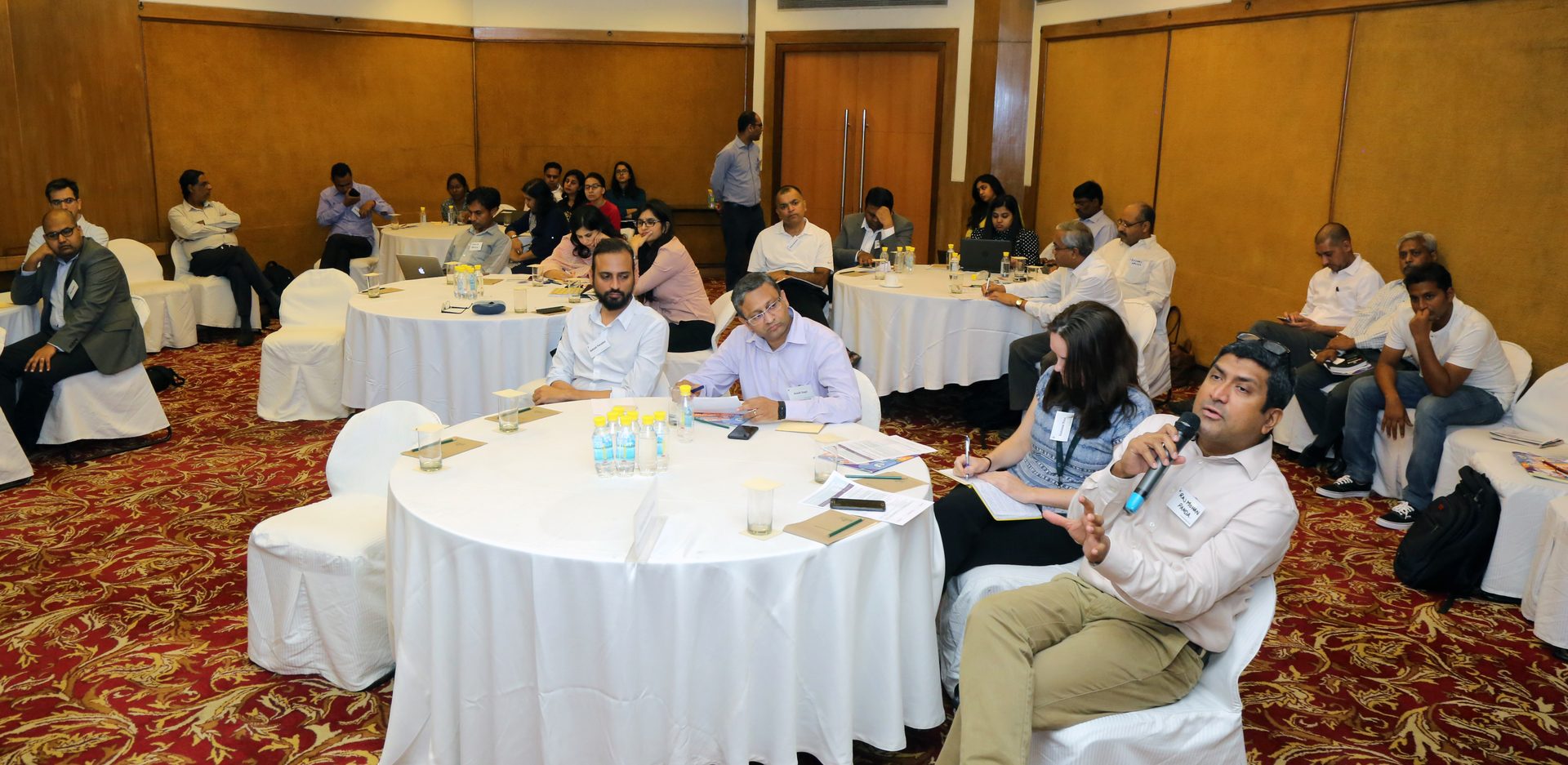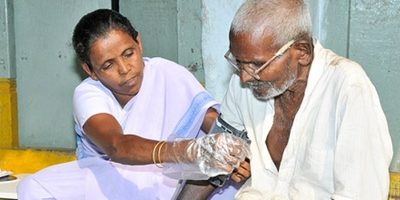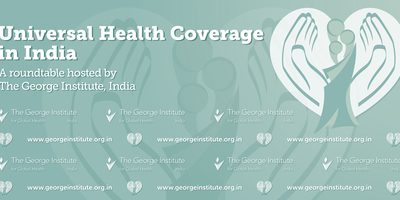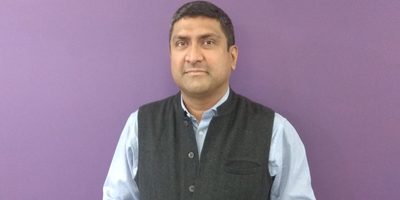
Increase in health financing and strategic purchasing key to achieving Universal Health Coverage
Experts who participated in a roundtable discussion on Progress towards Universal Health Coverage in India made an impassioned plea to the Government for increase in health financing and putting in place governance structures for strategic purchasing to prepare for an efficient roll out of the National Health Protection Scheme (NHPS).
Organised by the George Institute for Global Health, the roundtable brought together government officials, health care providers, academics, international agencies and civil society organisations for a critical examination of the progress to UHC, exploring key challenges particularly in relation to the setting of investment priorities and interactions with the private sector through strategic purchasing.
The timing of the meeting was ideal given that a critical component of India’s UHC initiative is the yet-to-be-finalised NHPS that will provide coverage for 500 million people and would be the largest social health insurance program in the world. Thus, it was felt that we are at a unique point in time to influence the development of this initiative and ultimately set out a clear path to universal health coverage.
Setting the tone for the discussion, Dr Stephen Jan of the George Institute for Global Health at Sydney said we must take care of multiple dimensions of UHC related to financing and service provision. Current investment trends across the globe are not enough, he said, adding substantial investments are required to meet the global 2030 SDG targets.
Dr Jan said that in moving toward universal health coverage, countries need to consider compulsory prepayment schemes via tax or social insurance as a means of addressing the uninsurable risks associated with NCDs. He also pointed out that Universal Health Coverage should cover not just services but prevention as well and so to achieve the SDG target, inter-sectoral convergence was needed.
Giving the Indian scenario, Dr Shankar Prinja, Health Economist at the Post-Graduate Institute of Medical Sciences and Research (PGIMER), Chandigarh said that there was an urgent need to increase the government spending on health and the public sector needs to be strengthened. There was also a need for evidence-based planning for choosing interventions and services in benefit package, he said.
Dr Anadi Gupt from the National Health Mission in Himachal Pradesh shared the State Government’s perspective on Universal Health Coverage along the six components defined by the World Health Organisation and what they were doing against each.
Making a special mention of the free drugs scheme, Dr Gupt said having a free scheme in place was not enough, procuring and disseminating of drugs so it reaches the needy and vulnerable, will need improved governance.
The plenary session was followed by two interactive Q and A sessions, in which all participants were encouraged to join in the discussions. The first was around the progress and main challenges of UHC; the second in the afternoon will focus on a specific area of major policy significance – strategic purchasing and UHC.
Speaking about the main challenges to achieving UHC, Dr Shaktivel Selvaraj from the Public Health Foundation of India said population coverage, service coverage and cost coverage were the main components and must be adequately balanced and addressed. He also said publicly funded health insurance schemes must ensure improved access and provide financial protection.
Dr Shefali Malhotra from the National Institute of Public Finance and Policy (NIPFP) presented an analysis of the health insurance schemes offered by the public and private sector. She said they had done an analysis of the claims ration and the settlement ratio and found it abysmally falling short of the consumer requirements.
Dr Anup Karan from the Indian Institute of Public Health said that all the health insurance schemes are designated for poor but the identification and definition of poor varies resulting in varied coverage across states. He also pointed out that strategic purchasing gives us a framework of tools to achieving Universal Health Coverage help maintaining health accessibility and health equity.
Others who spoke on the occasion included Dr Rahul Reddy from the National Health Systems Resource Centre (NHSRC) and Dr Nishant Jain from GIZ. Dr Rahul Reddy said that the NHSRC has documented case studies on lessons learnt while implementing various aspects of universal health coverage and these would provide valuable inputs for the new schemes to be introduced later this year
Dr Nishant Jain said strategic purchasing was a process and strong regulatory structures were required for the same. For the NHPS, there may be a need for a new regulatory structure that will address issues and bottlenecks in ongoing existing programs.
India’s current program of universal health coverage aims to provide reasonable access to health care for its 1.3 billion population. However, the challenges of achieving UHC are enormous. India currently has over 1 billion people uninsured and it has been estimated that 63 million Indians each year experience impoverishment due to illness and injury. In addition, high out-of-pocket costs pose significant barriers for many patients to treatment and long-term care. All this should be addressed in a robust and integrated scheme that should take care of the nuances, experts concluded.





